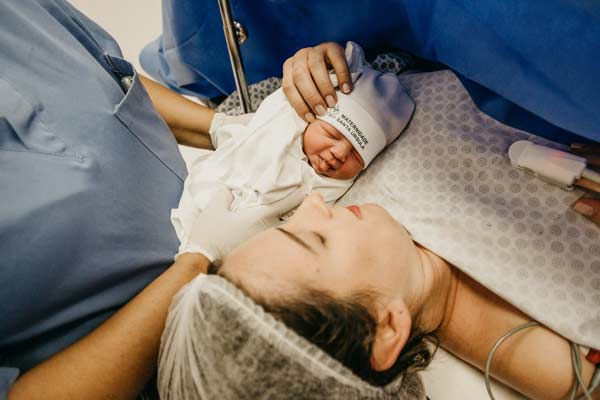How Much Does It Cost To Give Birth in Canada? 16 Things to Know
Giving birth is broadly known to be one of the most beautiful, transformative, and life-changing experiences you can go through. If you are pregnant or plan to have a baby, you know the costs of giving birth can add up quickly.
That’s why it’s essential to find out how much hospitals charge in Canada before deciding where to give birth to your child.
The cost of giving birth in Canada varies depending on where you live and the kind of birth. A “typical” birth in Canada costs an average of only $3,195.Cesarean deliveries cost an average of about $4,600 per patient, which is higher than normal. For the non-residents without insurance normal births range between $CA5,000 – $CA8,000 and for c-section birth: $CA10,000 – $CA12,000.Canada has high-quality facilities that offer the best while giving birth.
Here we’ll tell you everything you need to know about costs associated with having a baby in Canada?
1. Prenatal Care
Prenatal care refers to visits to your doctor or midwife throughout pregnancy. Your province may cover all or some of these costs. You may also need to buy a new wardrobe if your old clothes don’t fit anymore!
2. Prenatal Classes
You may need these classes if you are a first-time mother or have a long time since you had a child. If these are privately run and not at the hospital, they cost between $150 and $350 per workshop.
3. Physiotherapy
Chiropractic care or physiotherapy for pelvic pain and sciatica or backache are covered in most provinces. You won’t have out-of-pocket costs unless you see a chiropractor or physio outside your area.
4. Midwifery Care
If you don’t have a family doctor or are looking for extra support during your pregnancy, you can choose to be followed by a midwife. Midwives provide care throughout pregnancy and during labor and birth. They’ll also follow up with you once the baby is born to ensure everything is progressing well. They charge approximately $ 2500.
5. Obstetrician $500 to $1,500
Having a baby is considered a surgical procedure. Many women choose to deliver their babies by an obstetrician (OB). An OB will perform any surgery necessary during labor and delivery and can be consulted before birth if there are any concerns with the baby or mothers.
6. Labour and Delivery
If you deliver at home with the help of a midwife, labor and delivery can be significantly cheaper than delivering at a hospital with an obstetrician. If there are any complications during childbirth or if you need medications during delivery, these can affect the total out-of-pocket cost.
7. Nursery Stays
In hospitals where birthing rooms are available, many women choose to have their babies in the room with them after birth. If you prefer to have your baby in the nursery, this will usually be an extra charge (which may be covered by your health care plan).
8. Birth Control
After you give birth and you are not ready to have another baby right away, there may be costs associated with birth control to consider as well. The pill costs about $15 per month if you don’t have provincial coverage for prescription drugs.
9. Postpartum Expenses
Once your baby is born, there will still be some postpartum expenses to consider. If you’re breastfeeding, the cost of formula is eliminated from the equation — but there will still be diapers and other supplies to buy. Most hospitals will give new parents a starter kit with samples and coupons to get them started on their journey.
10. Ultrasound Scans
Most hospitals require at least two ultrasound scans to track the baby’s growth and development. Additional scans are sometimes needed if concerns about the pregnancy or the baby.
11. Postnatal Care
Postnatal care is essential for mothers who experience postpartum depression. This is a severe mental health condition that affects many women in the weeks and months following the birth of their child.
It can be challenging to recognize, as it’s often mistaken for the “baby blues” — a common term used to describe anxiety or sadness that most new moms experience after childbirth.
If you’re experiencing a combination of these symptoms, it’s essential to seek help earlier and start treatment for quick recovery.
Signs of postpartum depression
- Hallucinating – hearing, seeing, smelling, or feeling things not there.
- Being delusional – having thoughts or beliefs that are unlikely to be true.
- Manic mood – talking and thinking too much or too quickly.
12. Insurance Premiums
If you have private insurance, there is usually a monthly fee that pays for your care if you get sick or need to see a doctor. As a child is considered a dependent, they would be covered under your plan and not require separate coverage.
13. Maternity and Parental Benefits
There are two types of maternity and parental benefits available in Canada: maternity and parental benefits.
Maternity benefits are specifically for pregnant mothers who have recently given birth. Parental benefits are available to either parent after they give birth or adopt a child.
The amount of money received from these benefits depends on the province or territory. Some areas offer more than others.
14. Breastfeeding
Breastfeeding saves money because it’s free and has been shown to reduce instances of childhood illness in babies and lower their risk of obesity.
It also has health benefits for women who breastfeed, including reducing their breast cancer and ovarian cancer risk. This can result in lower future medical costs.
15. Your Ambulance Service May Be Free or Partially Covered
Depending on where you live and the type of hospital, you may pay a small fee for your ambulance service.
This fee could be anywhere from $45 to $250, but don’t worry, as these costs are usually minimal. Some provinces may even waive the fee altogether.
In Ontario, for example, if you’re giving birth at a municipal hospital, you won’t have to pay anything for your ambulance ride. If you’re giving birth at a non-municipal hospital (like a community hospital), you’ll have to cover some costs yourself.
16. Other Expenses
Pregnant women need maternity clothes and other items for the baby. Unless you already have these things (or someone gives them to you), there will be some shopping to do or maybe a trip or two to the thrift store. There will also be extra food costs if you eat for two (and a little one).
Will all this, you need not worry much about whether you can manage the expenses of giving birth in Canada.







